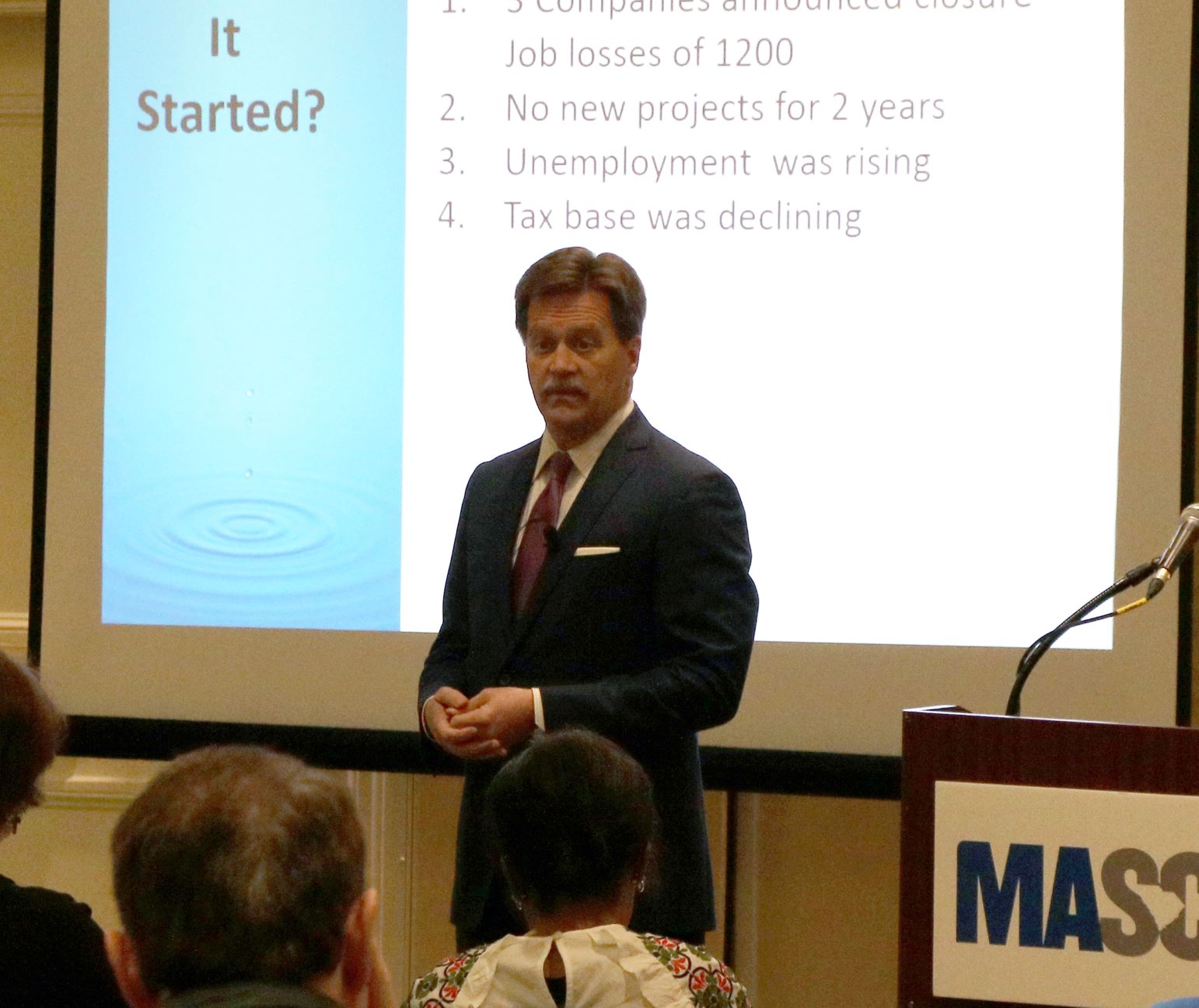Orangeburg County faced a daunting economic outlook in the mid-1990s, after three companies announced local closures, eliminating 1,200 jobs. New prospects did not appear, unemployment was rising and the tax base declining.

Orangeburg City Administrator John Yow presented during a session
of the Advanced Municipal Elected Officials Institute of Government.
Recognizing the great need for an interruption to the pattern, the county council determined that it wanted to create a new industrial park and partnered with the City of Orangeburg in the effort to make it happen.
Several Orangeburg representatives came to the Advanced Municipal Elected Officials Institute of Government's economic development session on February 6 to explain how this partnership has led to success during the last two decades.
After praising County Council's farsighted initiative, Orangeburg City Administrator John Yow described how the county provided assets including land for the industrial park, while the city brought its resources to bear, including infrastructure from the city. Warren Harley, manager of the City of Orangeburg Department of Public Utilities, provided details on its services, which include water, wastewater, electricity and gas for an area much larger than the city.
By 2018, the original park provided more than 1,100 jobs and $37 million in payroll, and the county has developed additional parks since. Twenty-one international companies from 12 nations are represented.
Gregg Robinson, executive director of the Orangeburg County Development Commission, was quick to point out that success required patience, and it began with people who pushed for change well before he took his current position. He invoked the concept of "cathedral thinking," something he said comes from state Sen. John W. Matthews Jr. — bricklayers have labored to build cathedrals who knew they would never live to see the finished product.
The group highlighted other efforts happening as well, such as the One Orangeburg County Initiative, focusing on gateways, commerce, housing, education and marketing. The program is responsible for the highly visible monument sign announcing the county on Interstate 26.
Robinson advised participating officials to ask themselves what assets their communities have. For Orangeburg County, he said, the answer is people, good utilities and interstate access.
"It literally starts at the local level," he said. "I don't want you to sit back in rural South Carolina and think that what we're talking about is not possible because it is. Everyone has the ability to achieve bite-sized success and build on it."
The next session of the Advanced MEO Institute will take place October 16 in Columbia, with a registration deadline of October 7. It will cover Municipal Utility Policy and Administration as well as Advanced Advocacy and Intergovernmental Relations.
